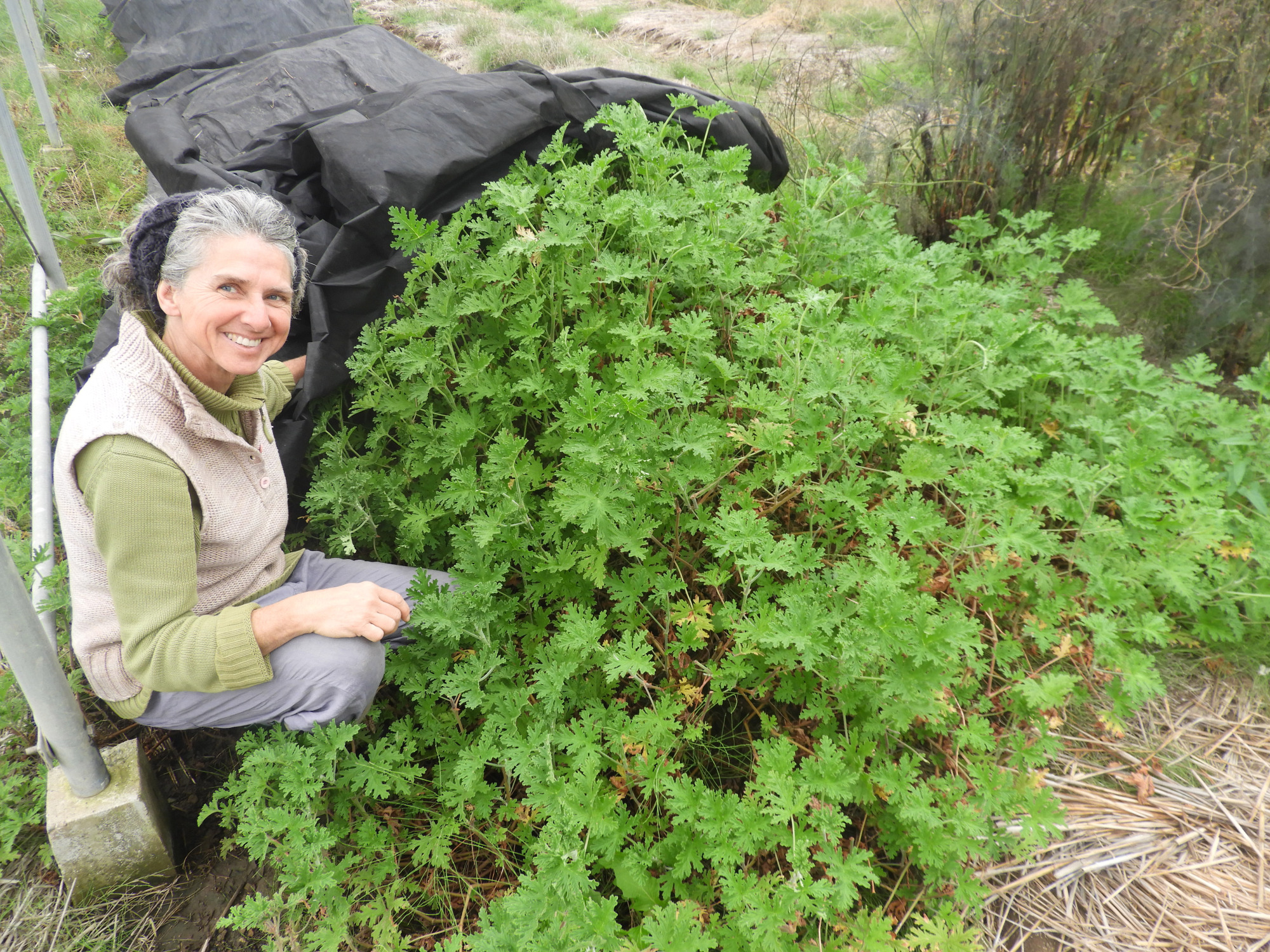Marie-Josee Laforest likes to say everything she grows on her farm, Le Jardin de Marie, was a gift.
From five holy basil seeds, an oregano plant, a few stems of orange mint, six fig tree cuttings and a handful of butterfly pea seeds, her sprouts have grown to become a 200-hectare organic permaculture farm in the mountains of Asono, Oita Prefecture, a tiny hamlet near Aso-Kuju National Park. To date, Laforest's Le Jardin de Marie is the only permaculture farm in Oita Prefecture.
A portmanteau of "permanent" and "agriculture," permaculture imitates nature's closed-loop, no-waste systems, aiming to replicate the "diversity, stability and resilience of natural ecosystems." Plants such as herbs, trees and vegetables, for example, are planted together in a single field and spaces between beds and plants are protected with a layer of plant matter. Beds are slightly raised and often curved to retain water and prevent erosion. When adequately tailored to the local environment, practitioners find the result is healthier soil and increased yield.



















With your current subscription plan you can comment on stories. However, before writing your first comment, please create a display name in the Profile section of your subscriber account page.